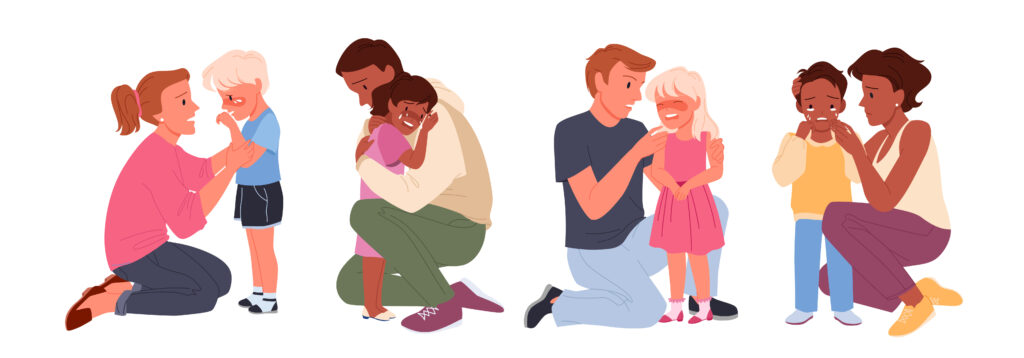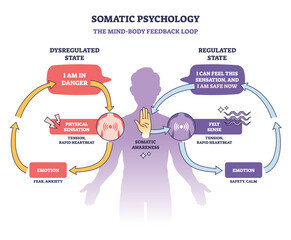Supporting a child when they are going through difficult emotions is challenging, yet it can also be rewarding. When they come to you for support, it means there is a significant level of trust in your relationship and an opportunity to model how to process emotions. If you would like to see your child stay calm with their body while upset, it is imperative that you stay calm as well. If you would like your child to communicate without aggression, you must express yourself without yelling and screaming as well. This level of connectedness, and “mirroring”, is not always natural, and may require some intentional planning and relationship building to accommodate the developing personality of your child. Below are three points to remember when helping a child when they are having big feelings.
- Prepare: Design a plan before the upset occurs Big feelings can be expressed in various ways. Children need help expressing themselves through developmental tasks and changes. Behaviors and feelings, such as tantrums, anger, sadness and excitement, are experienced by all children, thus they can be expected. Since we know they are going to happen, practicing and creating plans for these scenarios will help you and your child to know how to respond. This can look like practicing big breaths, play acting out the emotion and making corrections, brainstorming together strategies to help them calm down safely, or just simply talking about it. These discussions or activities can help your child feel more comfortable sharing their emotions and ensure that they are not processing them alone.
- Stay in Control: Be a stable and calm pillar Being calm in moments when a person you love is in distress is no easy feat. It takes effort, practice, mindfulness and patience to regulate our emotions while helping a child process theirs. This is increasingly difficult if a child is reacting with loud or aggressive expression. Research shows the positive impact of “mirror neurons” that demonstrate if parents consciously stay calm, the child will progressively become calmer and mirrors the calm parent (please see this resource for more information about mirror neurons.) Parents and care takers need to be proactive and find ways to regulate their emotions until a child is deescalated. When we are emotionally dysregulated our frontal lobe (where decision making occurs) shuts off, so we are unable to make any good decisions until we are calm and regulated. When parents manage their big emotions and provide a comforting and judgement free space for our children, they are more likely to express their big emotions in a more regulated way as well.
- Be Patient: Do not make changes or threats in the moment. Often children are feeling anxious because they feel that they did something wrong. While their behavior may not show it, they are seeking you out for support and guidance. It is best in these stressful moments to remember this goal of needing to problem-solve, not add to the problem itself. It is easy to quickly want to create changes in what they are doing or take action and tell them to “stop” or go to their room. The changes that need to be made are very important, but not in the immediate moment. The first goal should always be to ground the child, so they are able to gain emotional control. Changes, actions or consequences should be made shortly after a child is able to ground themselves and have a conversation about the occurrence. Strive for the first reaction to be comfort and calm in a space where they can safely process the content and abstain from becoming elevated or even more anxious. These conversations prior to grounding can lead to better changes for the child and positive experiences that foster emotional support.
Children change through each developmental stage so quickly that they may need several strategies to help and guide them as they grow. What worked to help a child become grounded, may not always work and can vary. This makes these three key concepts: Prepare, Stay in Control, and Be Patient, so essential as they will support you and your child remain consistent through all their developmental changes.
If you would like additional support in helping you manage your child’s big emotions, please reach out to a trained professional so they can educate you on the best strategies to help you and your family gain the calm and confidence you want. I specialize with children, teens and their families, providing parenting support and training and would love the opportunity to show you how your family can progress and flourish!
Reanna Barth, LPC Doctoral Candidate in Couples And Family Therapy




